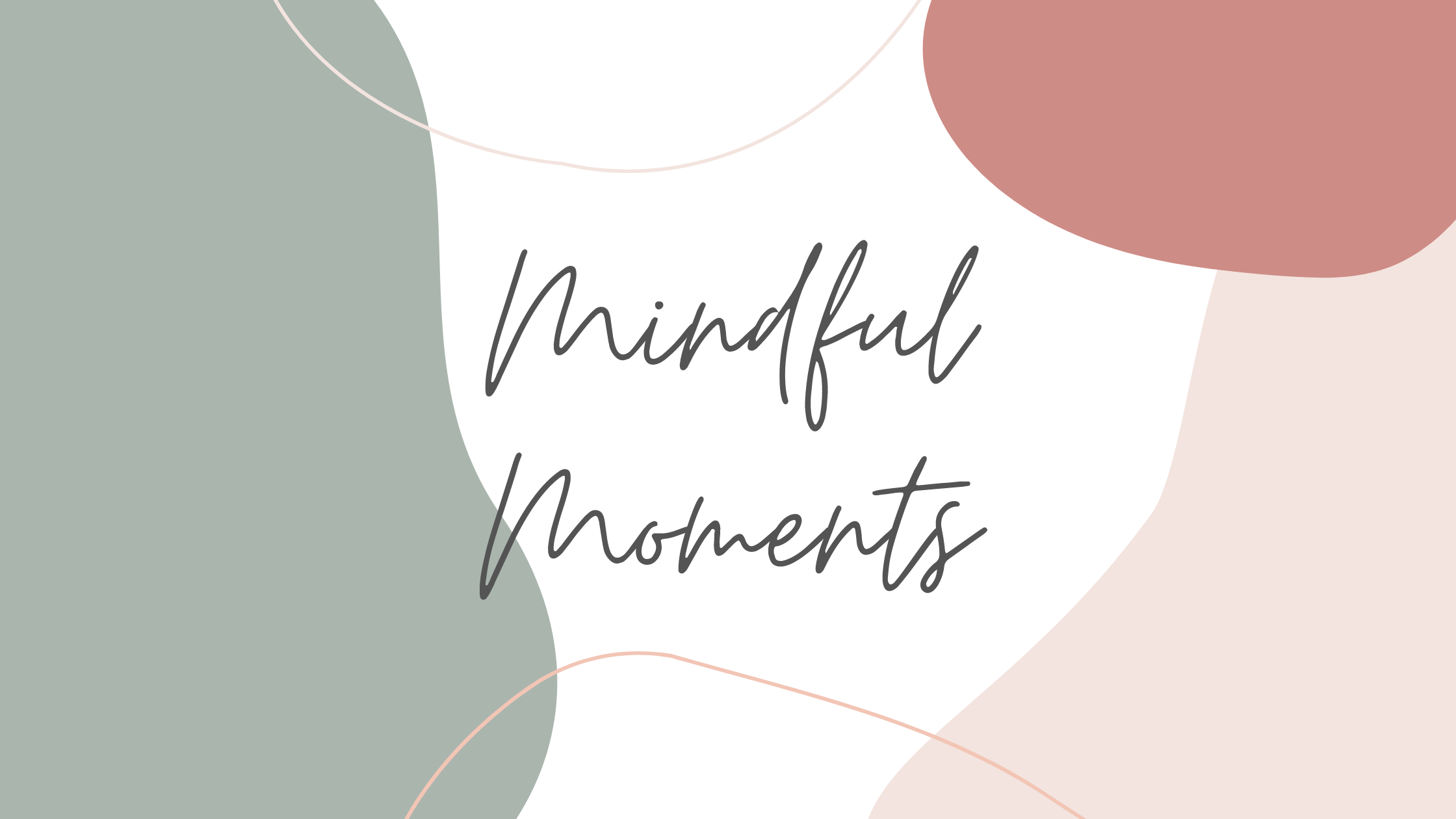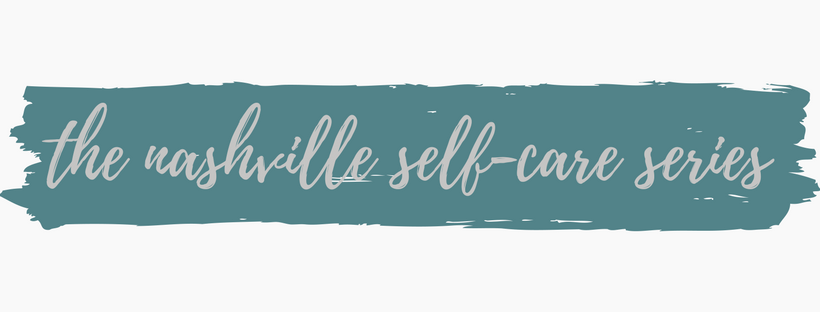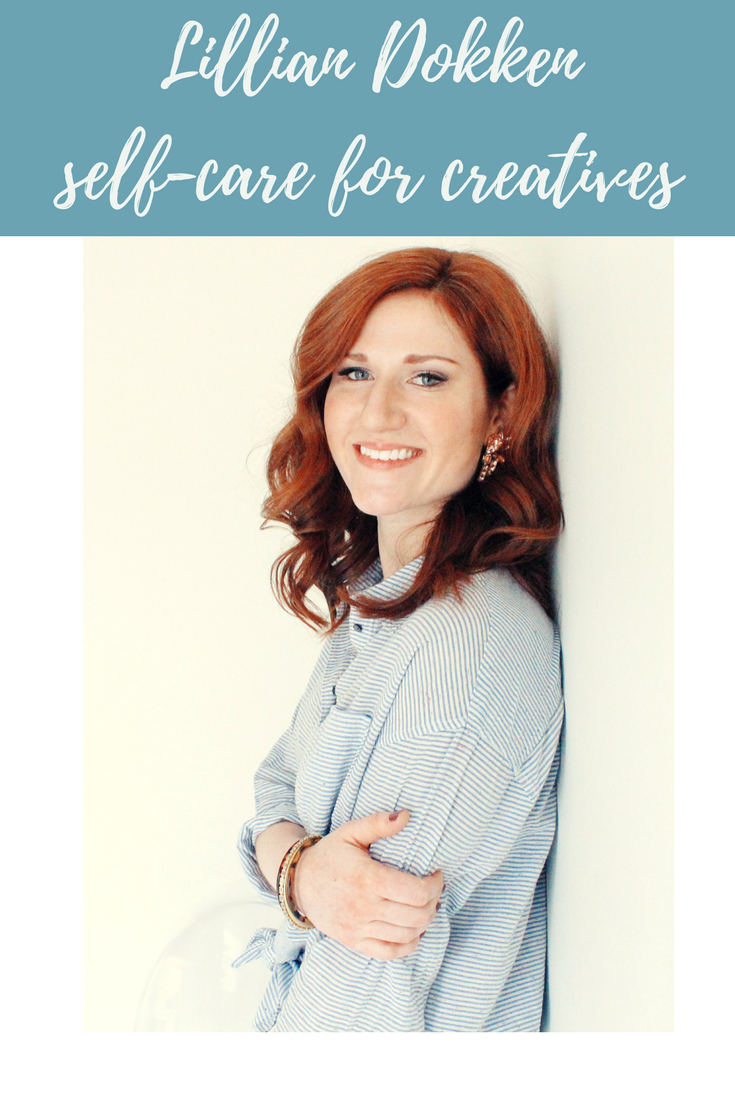Self-Care for the Theological Community | the nashville self-care series
/The Nashville Self-Care Series hopes to inspire women to be open to holistic ways of caring for themselves. Each of these self-care dialogues is with incredible women who may represent one career path but are a combination of employee, sister, mother, friend, and partner. When I was working with Mallory on this piece, I asked her "what should I call you because you do so many things?" And I believe that question connects with a lot of women who wear many "hats" professionally and personally. Dr. Mallory Wyckoff is a Spiritual Director, professor, writer and mother. I am excited to share Mallory's wisdom on both her personal self-care practices and her spiritual reflections on self-care.
What does a typical workday look like for you?
Having a 16-month-old and doing a significant portion of my work from home means that my days are seldom as structured as I’d like them to be, and each day varies. This has been a really difficult adjustment, so I’m continually trying to find and establish rhythms of rest and productivity that work well for me and for my family.
What are some daily, weekly, or annual/seasonal self-care practices that are beneficial to you?
One of the most important self-care practices I’m committed to is caring for my physical body, through exercise 4x a week and eating food that brings my body (and the planet) life. This practice just seems to set the tone for all the others, as it reminds me of so much: that my body is good and sacred; that I cannot live in my head but am an embodied human being; that the decisions I make towards health allow not only me but the creation around me to flourish; etc. Beyond this, my given season in life as a work-from-and-stay-at-home mom makes routine self-care practices difficult. Some days I mourn this, but most days I try to be open to any simple practice that allows me to be kind to myself and to live fully and presently. This might mean spending a few minutes in quiet meditation while I stretch after a workout, or it might mean lighting a candle from Anthropologie that smells impossibly good, or it might mean buying the freshest ingredients I can find and making a good meal for my family, or it might mean playing calming music that helps me breathe deeply and resist the urge towards anxiety.
After having my daughter I realized early on that it would be impossible to have a perfect schedule (because babies change every week and as soon as you set a schedule they manage to disrupt it), but I felt confident we could find a rhythm, a general orienting flow to the day. This is also true of my self-care practices. It is difficult (impossible perhaps?) to have a set of practices that are static and certain right now because one blowout diaper can quickly disrupt every best-laid plan. But what I can do is operate from a deeply rooted theology of human dignity, knowing that my entire person—body, mind, spirit—matters, that I am worthy of receiving kindness—even and especially kindness that I extend to myself—and that being a grateful recipient of kind acts opens me up to offer them to others in my work and service in the world. Starting from this point helps me aware to wherever, whenever, and however I am being extended that sort of kindness, that opportunity to be fully present in a moment and see the enormous sacredness of the whole thing.
How have self-care practices impacted your life and work?
I am, in some ways, a machine. I have an absurd capability to produce, to perform, to achieve, and to do it all as efficiently as possible. It is the mechanism I’ve developed to interface with the world and to survive, and in some ways it has served me well. But in other ways, I spin my wheels so hard and fast that I’m hundreds of miles down the road before realizing that I’m out of steam and breaking down. Self-care practices speak truth to me about my truest self, that beyond all that I can accomplish or achieve or produce—even and especially the “good” things—who I truly am is a child of God, and a human being made in God’s image. I do not need to push myself to the furthest limits of my abilities. I do not need to be efficient in all things. I do not have to serve everyone in every way possible. These are all parts of my false self, rearing its rather ugly head. Self-care speaks to and from my truest self, reminding me that I can rest, and I can receive good gifts, and I can be cared for, and I can be loved—independent of what or how much I can produce and accomplish. This is a liberating message. And when I choose to hear and imbibe that message, I also stop demanding that others produce and accomplish and keep my same frenzied pace. I instead allow them to be beloved image bearers of God, worthy of being seen and cared for and loved.
Are there any practices of self-care that you are implementing in 2018? Why?
I want to be more connected to other humans. I am a task-oriented person, and if I’m honest with myself, I sometimes see people as obstacles to my accomplishing those tasks. But when a friend invites me to have tea or to go out for drinks, I want to say yes and to say it fully and not see it as keeping me from my very real and demanding stack of to-do items. I want to initiate this more, and to receive others’ invitations with gratitude.
How does your industry/field practice or promote self-care?
My training and work are in the field of theology, and in many ways the Western church has adopted really bad theology about the body, speaking of it solely or mostly in pejorative terms and relegating it to a status inferior to things of the spirit. But true, good, biblical theology honors the body, honors creation, and holds all these as sacred. So, when we are at our best, we theologians not only speak of the sacredness of all of creation but we live from and into that reality in the ways we care for ourselves, for others, and for all of creation. When we are at our worst, we speak and live in ways that drive further the perceived disconnect between sacred and secular, body and spirit. Sometimes, good self-care can be part of what helps us navigate how to hold together those pieces that never were meant to be separated.
Are there any books/movies/songs that are currently life-giving for you?
Here are things that are currently bringing me life, all for various reasons which share one common thing: they orient me to the present and help me live more fully as a human being.
Music for meditation that makes me feel like I’m at a spa
Lemon La Croix, every day with lunch
High intensity interval training that makes me sweat and release whatever my body and pores have been carrying
Bon Iver, on repeat
Taking time to work on a book that I need to give life to, and seeing it come into form
Diffusing essential oils
Reading books with my daughter as she sits on my lap
Homemade, creative cocktails with fresh ingredients
Rob Bell’s podcasts that help restore my sanity
Watching Jerry Seinfeld’s “Comedians in Cars Getting Coffee” and being reminded that there is a lot to laugh about
Mallory Wyckoff (DMin, MTS) lives with her husband, Tim, and daughter, Olive, in Nashville, TN, despite her sincere dislike of country music and Southern food. Mallory is a spiritual director and seeks to create safe spaces wherein people can explore more fully the mystery of the Divine and who they are as image-bearers of God. She also teaches in the College of Bible and Ministry at Lipscomb University, and works in the DMin department supporting students in their doctoral research.
If you are looking to add counseling into your routine and rhythm, then contact Jessica at 615-979-4168 or by filling out this form. If you want more information on self-care check out these resources.






























